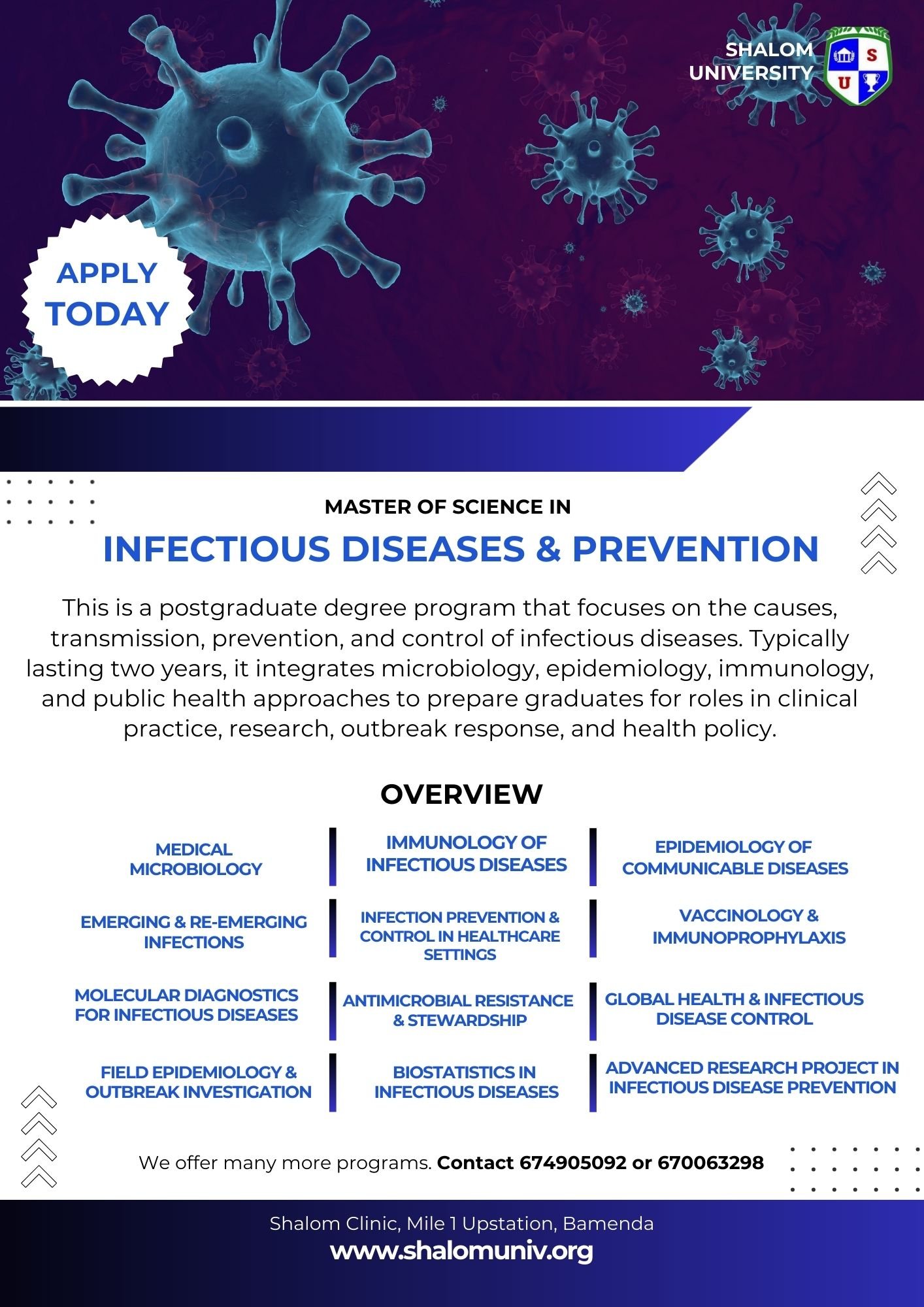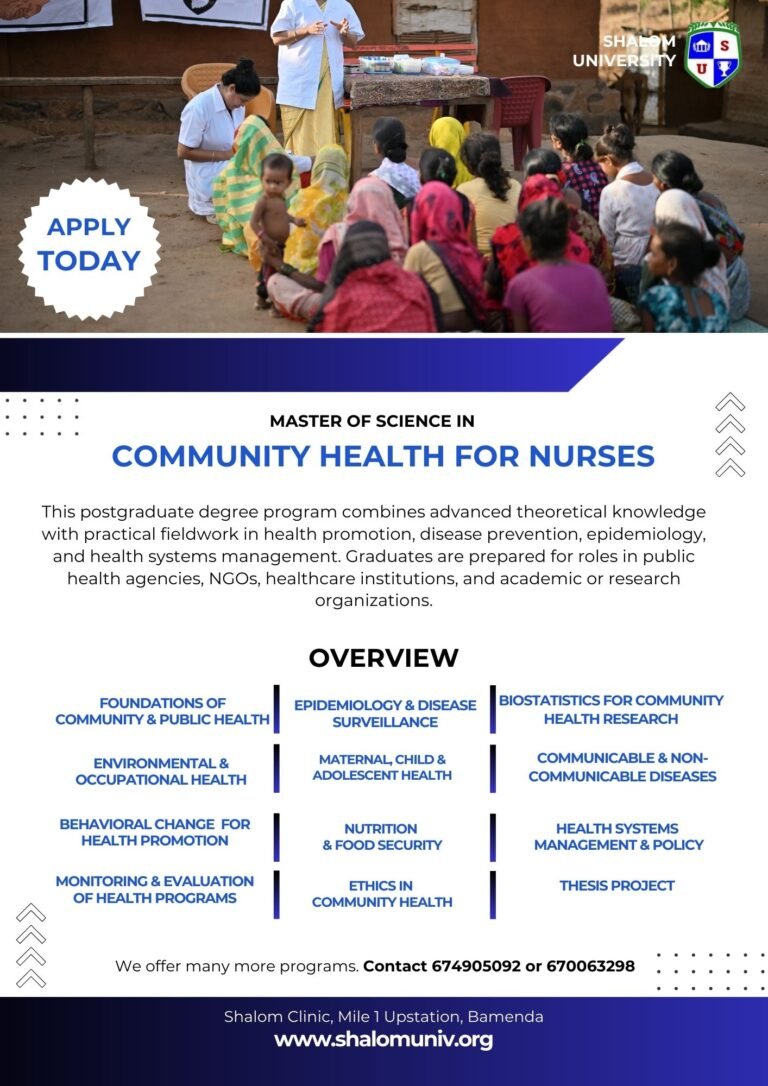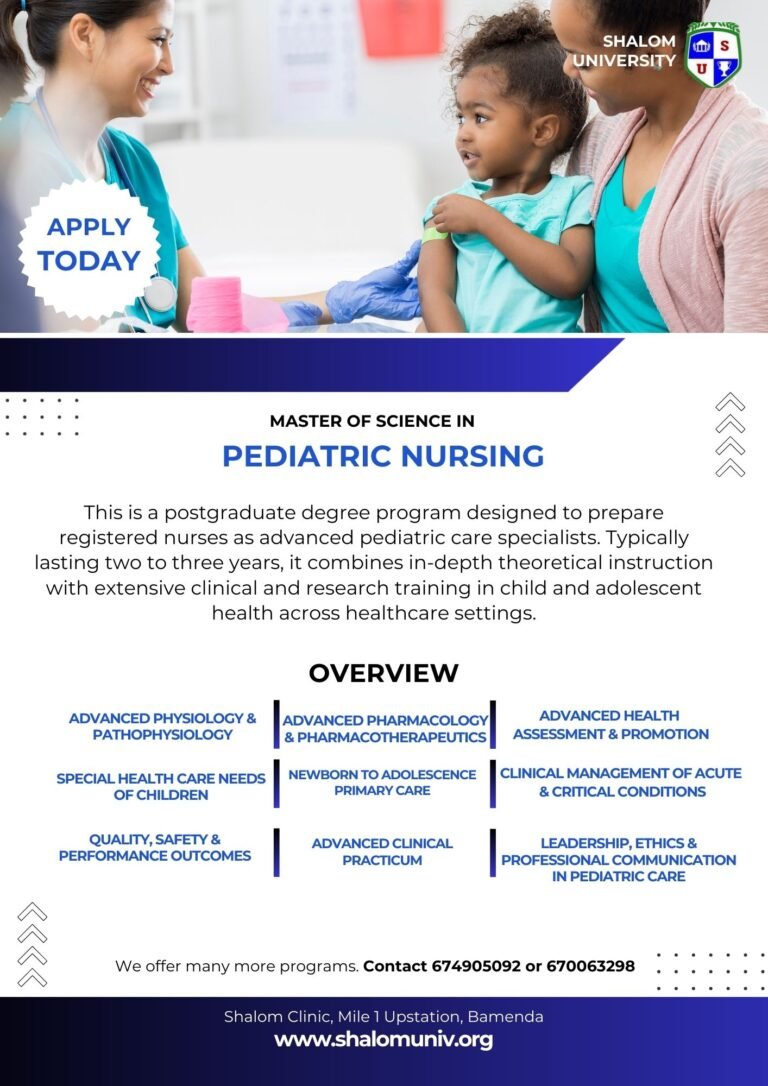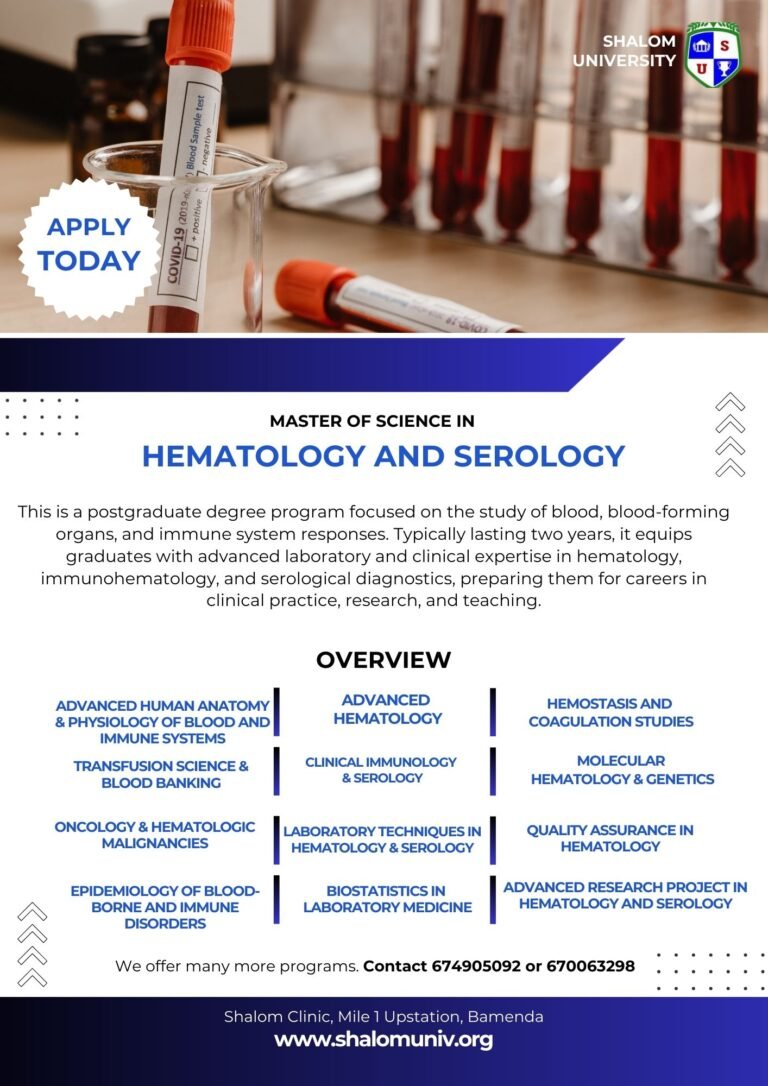Infectious diseases remain one of the greatest challenges to global health, impacting millions of lives each year. From pandemics like COVID-19 to the persistent burden of malaria, tuberculosis, and HIV/AIDS, the world needs professionals trained to study, prevent, and control infectious diseases. At Shalom University, the Master of Science (MSc) in Infectious Diseases and Prevention equips students with advanced knowledge and practical skills to respond effectively to these health threats.
This program blends microbiology, immunology, epidemiology, and public health interventions with hands-on research and fieldwork. Graduates are prepared to work in hospitals, laboratories, research institutions, and international health organizations, where they contribute to saving lives and shaping policy.
Advanced Medical Microbiology
Students begin with a strong grounding in medical microbiology, focusing on pathogenic microorganisms, their biology, and clinical significance. This module provides the scientific base necessary to understand disease-causing bacteria, viruses, fungi, and parasites.
Immunology of Infectious Diseases
The course on immunology examines how the human body responds to infections. Students explore the mechanisms of innate and adaptive immunity, immune evasion by pathogens, and the role of immunology in vaccine development and disease prevention.
Epidemiology of Communicable Diseases
This module introduces students to the epidemiological principles that guide the study of communicable diseases. It emphasizes data analysis, disease surveillance, and how to design strategies for controlling the spread of infections in communities.
Emerging & Re-emerging Infections
Students study global health threats such as Ebola, Zika, avian influenza, and antimicrobial-resistant pathogens. This course highlights how environmental changes, globalization, and human behavior contribute to emerging infectious diseases.
Infection Prevention & Control in Healthcare Settings
In healthcare, infection prevention saves lives. This course equips students with evidence-based practices for infection control in hospitals and clinics, including hand hygiene, sterilization, and hospital outbreak management.
Vaccinology & Immunoprophylaxis
Students gain expertise in vaccine science, from vaccine design and clinical trials to implementation in public health programs. The course also covers immunoprophylaxis, including passive and active immunization methods to prevent infectious diseases.
Molecular Diagnostics for Infectious Diseases
Modern healthcare relies on molecular tools for quick and accurate diagnosis. Students receive hands-on training in PCR, sequencing, and rapid diagnostic tests, preparing them to work in clinical and research laboratories.
Antimicrobial Resistance & Stewardship
The rise of antimicrobial resistance (AMR) is a global crisis. This module trains students to understand mechanisms of resistance, develop stewardship programs, and design strategies to preserve the effectiveness of existing treatments.
Global Health & Infectious Disease Control
Infectious diseases transcend borders. This course covers international health policies, global disease eradication programs, and collaborative approaches to tackling infectious threats in low- and high-income settings.
Field Epidemiology & Outbreak Investigation
Students are trained in outbreak investigation methods, including field data collection, case definition, contact tracing, and control measures. This hands-on course prepares graduates to act swiftly during epidemics and pandemics.
Research Methods & Biostatistics in Infectious Diseases
A strong foundation in research design and statistical analysis is essential. This course equips students with the tools to design studies, analyze epidemiological data, and contribute to peer-reviewed scientific publications.
Thesis/Capstone Project in Infectious Disease Prevention
The program culminates with a thesis or capstone project, where students conduct independent research on a pressing issue in infectious disease prevention. This project demonstrates their ability to apply theory to real-world challenges.
Why Choose Shalom University’s MSc in Infectious Diseases and Prevention?
Shalom University provides state-of-the-art laboratories, experienced faculty, and strong links to healthcare institutions and global health partners. The MSc in Infectious Diseases and Prevention is not just an academic journey—it’s a mission to equip professionals who will lead the fight against infectious diseases.
Graduates are positioned for careers as epidemiologists, infection control specialists, research scientists, public health officers, and policy advisors in both local and international organizations.
👉 Learn more about our MSc in Infectious Diseases and Prevention and other Master of Science programs at Shalom University today.




